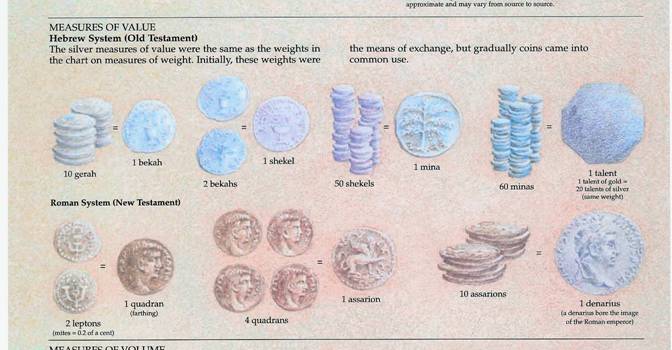Matthew
Matthew
MEANING: “Gift of the Lord.”
AUTHOR: Matthew, the son of Alphaeus (Mark 2:14)
TIME WRITTEN: Possibly between
37-68 A.D.-(disputed) 58-68 A.D.
POSITION IN THE BIBLE: • 40th Book in the Bible
• 1st Book in the New Testament
• 1st of 4 books of Biography
(Matthew - John)
• 26 Books to follow it.
OBSERVATIONS ABOUT MATTHEW:
Matthew is the gospel record:
• Written by a Jew - Matthew.
• Written to Jews - his countrymen.
• Written about a Jew - the long-awaited Messiah.
Matthew uses quotes from the Old Testament to establish that Jesus Christ is indeed the Messiah.
• More than 130 times Matthew uses quotations and allusions to the Old Testament to show that Jesus
fulfills the qualifications for the Messiah.
• Matthew often uses the phrase, “that which was spoken through the prophets might be fulfilled.” That phrase does not appear once in Mark, Luke, or John.
• The phrase, “Son of David,” referring to the Davidic line, occurs 9 times in Matthew, but only 6 times collectively in Mark, Luke, and John.
Matthew shows his Jewish readers that Jesus Christ is the culmination of promises.
Matthew shows that God’s redemptive plan is well even after 400 years of prophetic silence.
Messiah means “the Anointed One.”
Matthew gives a large reception in his house so his associates could meet Jesus. Matthew 9:10
The last appearance of his name in the Bible is in Acts 1:13.
The phrase, “kingdom of heaven” appears 55 times in Matthew.
Matthew (Levi) was a tax collector in Capernaum when Jesus called him to follow Him.
As a publican (tax collector), Matthew was no doubt disliked by his countrymen.
The turning point in the Book of Matthew comes in chapter 12 when the Pharisees formally reject Jesus as the Messiah, saying that His power comes from Satan and not from God. Christ’s ministry changes immediately with:
• His increased use of parables.
• Increased attention to his disciples.
• His repeated statements that His death is now near.
The Book of Matthew is placed first in the canon of the New Testament books by the early church because of its natural bridge between the Old and New Testaments.
Three Parables Are Given
Fig Tree
Matthew 24:32 "Now learn the parable from the fig tree: when its branch has already become tender and puts forth its leaves, you know that summer is near;
Matthew 24:33 so, you too, when you see all these things, recognize that He is near, right at the door.
Ten Virgins
Matthew 25:1 "Then the kingdom of heaven will be comparable to ten virgins, who took their lamps and went out to meet the bridegroom.
Matthew 25:2 "Five of them were foolish, and five were prudent.
Matthew 25:3 "For when the foolish took their lamps, they took no oil with them,
Matthew 25:4 but the prudent took oil in flasks along with their lamps.
Talents
Matthew 25:14 "For it is just like a man about to go on a journey, who called his own slaves and entrusted his possessions to them.
Matthew 25:15 "To one he gave five talents, to another, two, and to another, one, each according to his own ability; and he went on his journey.
Matthew 25:16 "Immediately the one who had received the five talents went and traded with them, and gained five more talents.
Matthew 25:17 "In the same manner the one who had received the two talents gained two more.
Matthew 25:18 "But he who received the one talent went away, and dug a hole in the ground and hid his master's money.

Value of a Hebrew Talent of silver
But the Hebrew talent of silver, called cicar was equivalent to three thousand shekels, or one hundred and thirteen pounds, ten ounces and a fraction, troy weight.
This was a weight used among the Jews, Greeks, and Romans, but varying exceedingly in different countries and in different parts of the same country.
The Jewish talent is usually estimated at about 125 pounds troy weight, though others estimate it a little less then 114 pounds troy. The common Attic talent was equal, on the usual estimate, to about 56 lbs. 11 oz. troy.
In the New Testament, a talent is a denomination of money, which was anciently reckoned by weight. The value of the talent, therefore, varied in different countries, in proportion to the different weights of the talent. The Jewish talent appears, from Exodus 38:25, 26, to have been equal to 3,000 shekels; and as the shekel is estimated at about fifty cents, the value of the talent would be about 1,500 dollars.
The Attic talent is usually reckoned at about 225 pounds sterling, or 1,000 dollars, though others make it only about 860 dollars. The talent spoken of in the New Testament is probably the Jewish, and is used only of an indefinitely large sum, Matthew 18:24; 25:14-30.
Did Jesus Baptize
Fellowshipping
Five
God Is Love
How Courage Triumphs
Humble - Gentle
Once Saved
Always Saved
One Day As A Thousand
Order of Authority
The Seven Judgments
The Ten Commandments of God
The Vineyard
Why Study The Whole Bible
Click On Back To Return To Bible Book Notes